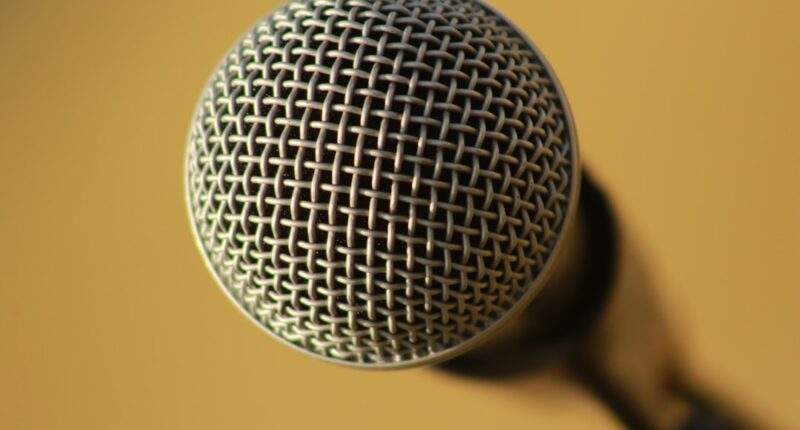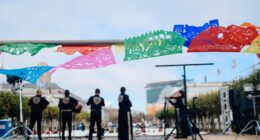It’s simple to underestimate the influence of traditional radio airplay in the current digital era, where social media and streaming services rule the music business. For musicians, getting airplay on their music can still be a huge game-changer. Radio play not only gets your music in front of a large audience, but it also helps you gain recognition & attract new followers. We’ll look at a variety of methods and approaches in this blog post to help you get your music played on the radio & make the most of it. It is essential to comprehend the various kinds of radio stations and their listeners before venturing into the realm of radio promotion.
Key Takeaways
- Getting your music on radio can be a great way to gain exposure and build your fan base.
- Understanding the radio industry and its listeners is crucial for creating a successful music promotion plan.
- The Music Professionals Directory can help you build your network and connect with industry professionals.
- Crafting a compelling press release and building relationships with radio DJs and program directors are key to getting radio airplay.
- Leveraging social media and measuring the success of your radio campaign can help you make adjustments and improve your strategy.
Different radio station formats, including pop, rock, country, hip-hop, and more, can be distinguished. Every format targets a particular musical preference & demographic. You may modify your promotion efforts by having a thorough understanding of your target audience and the kinds of radio stations they enjoy.
Establishing a robust network of music industry professionals is one of the best strategies to get your music played on radio stations. A great tool for connecting with industry professionals, such as radio DJs, program directors, & music promoters, is the Music Professionals Directory. You can get your music played on the radio by using this directory to connect with the appropriate individuals. A well-thought-out music promotion plan is essential to increasing your chances of receiving radio airplay. Key components of a successful promotion strategy include determining your target market, establishing reasonable objectives, producing eye-catching promotional content, & making use of a variety of marketing channels. You can increase your chances of success by customizing your strategy to your music and target audience.
A larger audience can be reached by your music through effective music marketing in addition to radio airplay. Maintaining a unified and consistent brand image throughout all of your marketing initiatives is crucial. This entails using social media, working with influencers, leveraging online communities, and producing interesting content. You can effectively promote your music and raise your chances of receiving radio airplay by putting these pointers and techniques into practice. A strong press release can work wonders to get radio stations to play your music.
| Metrics | Description |
|---|---|
| Radio airplay | The number of times your music is played on radio stations |
| Radio reach | The number of people who hear your music on radio |
| Radio format | The type of radio station that plays your music (e.g. Top 40, Alternative, Country) |
| Radio promotion | The strategies and tactics used to get your music on radio |
| Radio interviews | The number of times you are interviewed on radio stations to promote your music |
| Radio charts | The rankings of the most popular songs on radio stations |
A press release is a succinct and educational document that summarizes the salient features of your music, including its genre, USPs, & any noteworthy accomplishments. You can increase your chances of getting your music played on the radio by writing a press release that stands out from the competition and catches the attention of radio DJs and program directors. For musicians, radio airplay has many advantages. It helps you establish credibility and become recognized in the industry in addition to exposing your music to a larger audience.
Building a rapport with radio DJs & program directors is crucial if you want your music to be played on the radio. You can accomplish this by showing your music at regional venues, networking, and going to industry gatherings. You can raise your chances of success by realizing the value of radio airplay & putting successful strategies into practice. For your music to be played on radio stations, you must establish connections with industry insiders like program directors and radio DJs. These people have the ability to affect the music that is broadcast on the radio. Establishing rapport with them requires that you treat them with professionalism, show consideration for their time, & present your music in an engaging manner.
The likelihood of having your music played on the radio can be raised by networking & making contacts. These days, with everything being digital, social media is a big part of music promotion. It offers a venue for musicians to interact with industry professionals, share their music, and establish connections with their fans.
In order to make the most of social media, you should collaborate with influencers, produce interesting content, & engage your audience. Your chances of getting your music played on the radio can be increased by using social media platforms to raise your profile and catch radio stations’ attention. Following the implementation of your radio promotion strategies, it’s critical to monitor campaign success & make any necessary adjustments. This can be achieved by keeping an eye on radio airplay, examining audience interaction, & tracking the expansion of your fan base. You can make wise decisions and maximize your upcoming marketing endeavors by evaluating the campaign’s performance & determining what works and what doesn’t.
As a result, while getting your music played on the radio may seem impossible, it is absolutely doable with the correct plans & methods. You can improve your chances of getting your music played on the radio by learning about the radio industry, developing a strong network of industry professionals, coming up with a clever promotion strategy, utilizing social media, and tracking your progress. Thus, to reach a larger audience and advance your music career, act now and begin radio promotion of your songs.
If you’re wondering how to get your music on the radio, you’ll definitely want to check out this informative article on musicmarketing.blog. In their post titled “Hello World,” they provide valuable insights and tips on how to successfully promote your music and secure airplay. Whether you’re an aspiring artist or an established musician looking to expand your reach, this article is a must-read. Don’t miss out on the opportunity to learn from industry experts and take your music career to the next level. Read more here.
FAQs
What is the process of getting your music on the radio?
The process of getting your music on the radio involves submitting your music to radio stations, building relationships with radio DJs and program directors, and promoting your music through various channels.
What are the requirements for getting your music on the radio?
The requirements for getting your music on the radio vary depending on the radio station and the genre of music. Generally, radio stations look for high-quality recordings, well-written songs, and a unique sound that will appeal to their audience.
How do you submit your music to radio stations?
You can submit your music to radio stations by sending a demo or press kit to the station’s program director or music director. You can also use online platforms such as SubmitHub or Radio Airplay to submit your music to multiple stations at once.
What are some tips for getting your music on the radio?
Some tips for getting your music on the radio include building relationships with radio DJs and program directors, promoting your music through social media and other channels, and performing live shows to gain exposure.
What are the benefits of getting your music on the radio?
Getting your music on the radio can help you reach a wider audience, gain exposure, and increase your fan base. It can also lead to opportunities for live performances and collaborations with other artists.









